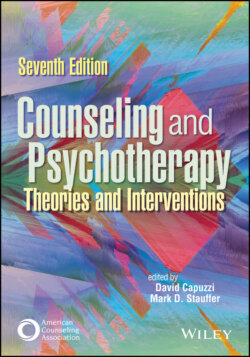Читать книгу Counseling and Psychotherapy - Группа авторов - Страница 150
Supporting Research
ОглавлениеPsychoanalysis in its classical form has limited current empirical support across contexts and populations and has evolved to meet the changing needs of managed care and community-based programs that emphasize productivity led by evidence-based practices. In its brief form, the efficacy of its techniques is equal to that of other mainstream counseling modalities such as the cognitive behavioral approach (Horvath, 2005; see Sidebar 3.4).
Derived from these techniques, psychodynamic psychotherapy is strongly clinically supported as effective with many diagnoses and populations (Shedler, 2010). Meta-analytic reviews of treatment outcome studies and randomized controlled trials support its efficacy for treating mood and anxiety disorders, somatoform disorders, and schizophrenia. This approach has also been compared with dialectical behavior therapy in its effectiveness and quality of treatment for borderline personality disorder (Seligman & Reichenberg, 2014). In the area of psychoanalytic and psychodynamic research, the trend toward evidence-based support is encouraging counselors to reexamine the use of traditional techniques based on significant results from randomized controlled trials, brain scans, and the measurable effects of talk therapies on behavior, brain activity, and brain function (Sonnenberg, 2011).
Originally intended as an explanation of the effects of childhood trauma in later life, psychoanalysis has evolved to include explanations of personality development and maladaptive behaviors resulting from disturbances in early relationships. Many counselors suggest that psychoanalysis can also be used to describe or explain a vast array of other concepts outside the realm of the psychological field and is a powerful model for understanding the role and impact of early childhood conflicts in clients’ lives. One of the greatest strengths of psychoanalytic theory is the breadth and depth of the explorations into personality development and coping skills, making it a comprehensive theory with much versatility in practical use.
This theory is especially useful in understanding the basis for resistances that may present as missing appointments, refusing to engage in introspection, and being reluctant to examine the use of defenses (Corey, 2021). From a psychoanalytic viewpoint, the client will bring to the session a consistent set of themes rich with content accumulated over their lifetime. And individually or in combination with other theories, psychoanalysis is a valuable tool that counselors may use to develop an effective treatment plan based on the symptoms and patterns of behaviors initially observed within a psychoanalytic framework. Katz-Bearnot (2009) suggested that the psychoanalytic orientation offers the most comprehensive approach to counseling because the theory considers unconscious factors, including transference, enactments, and aspects of the client’s personal relationships.
